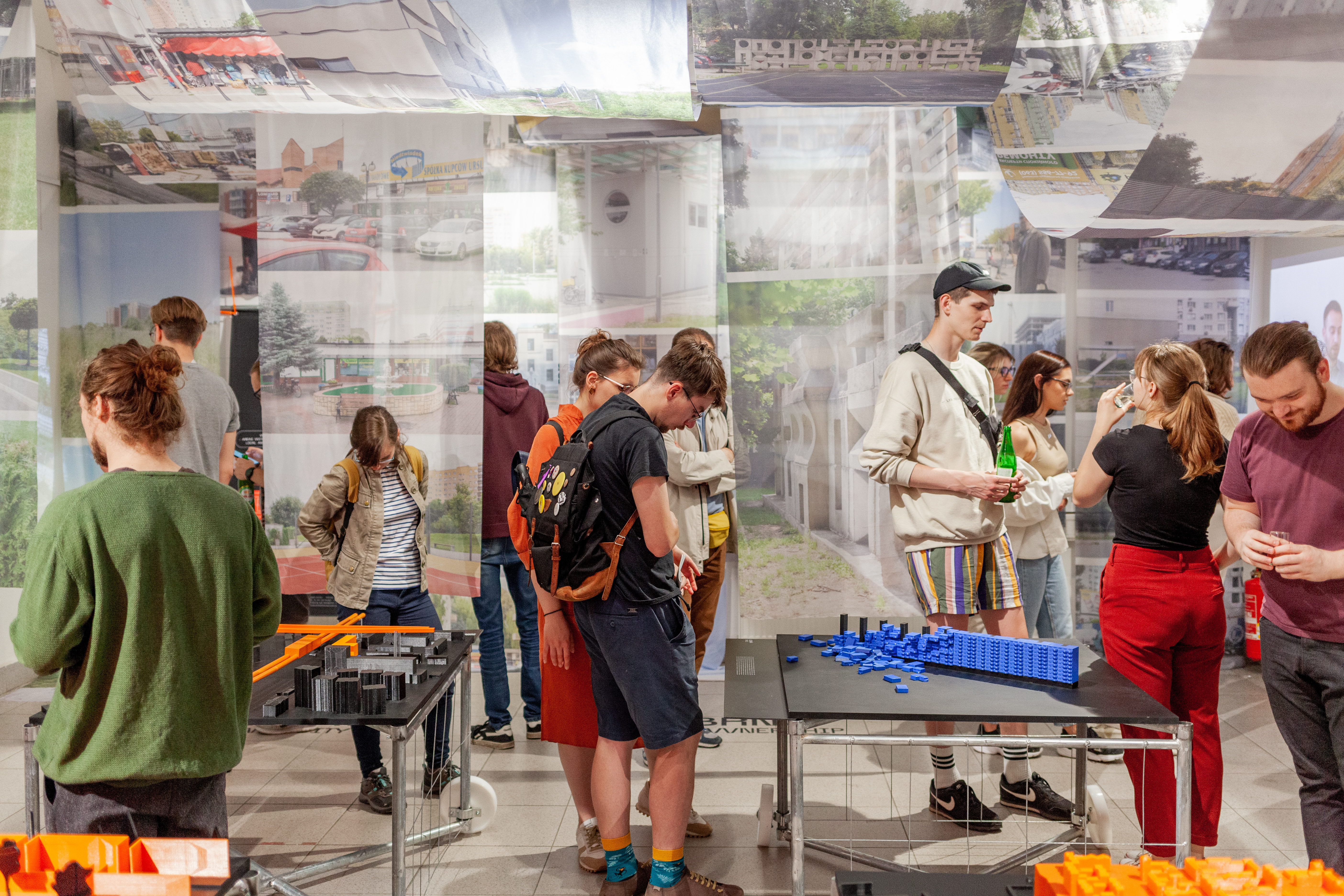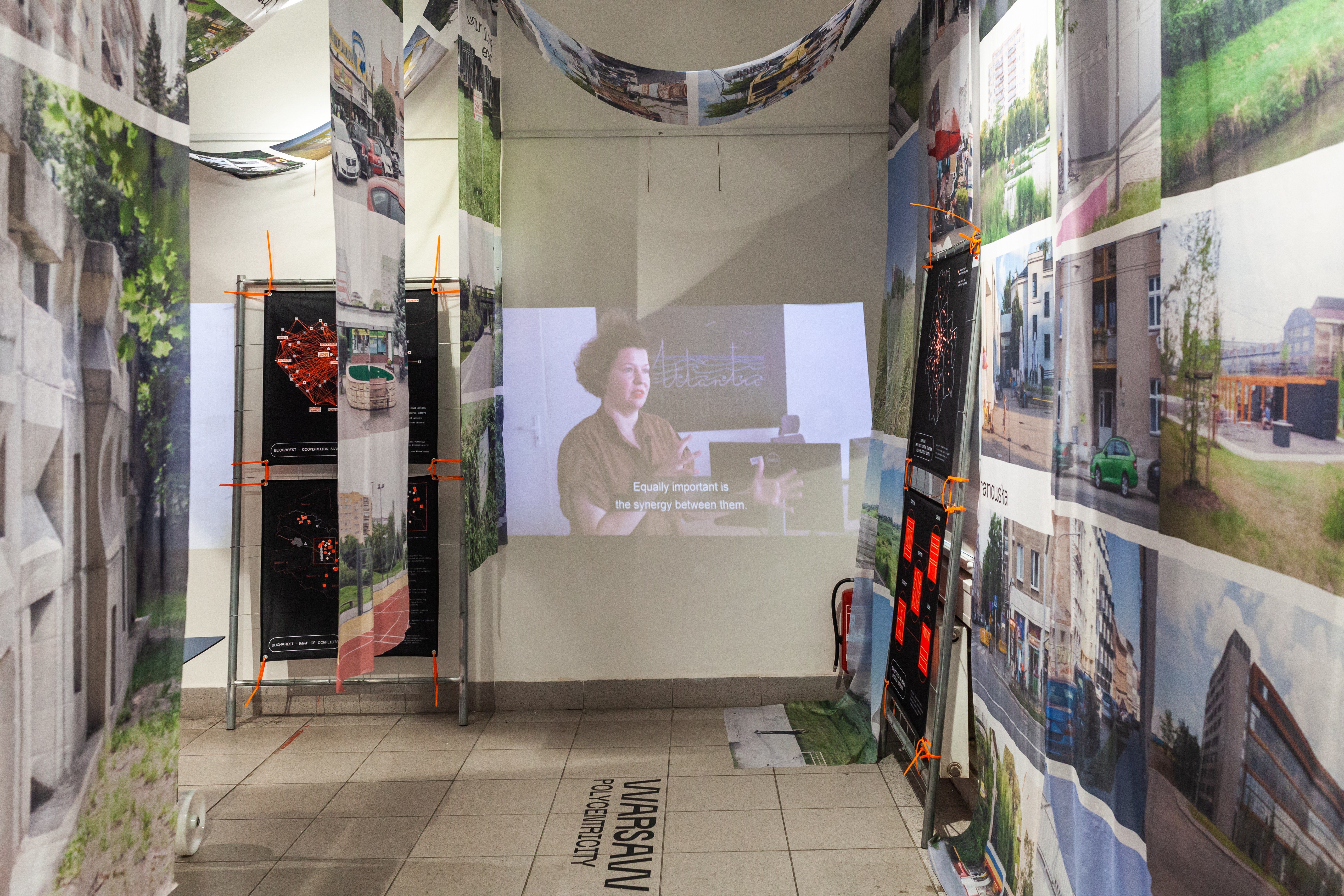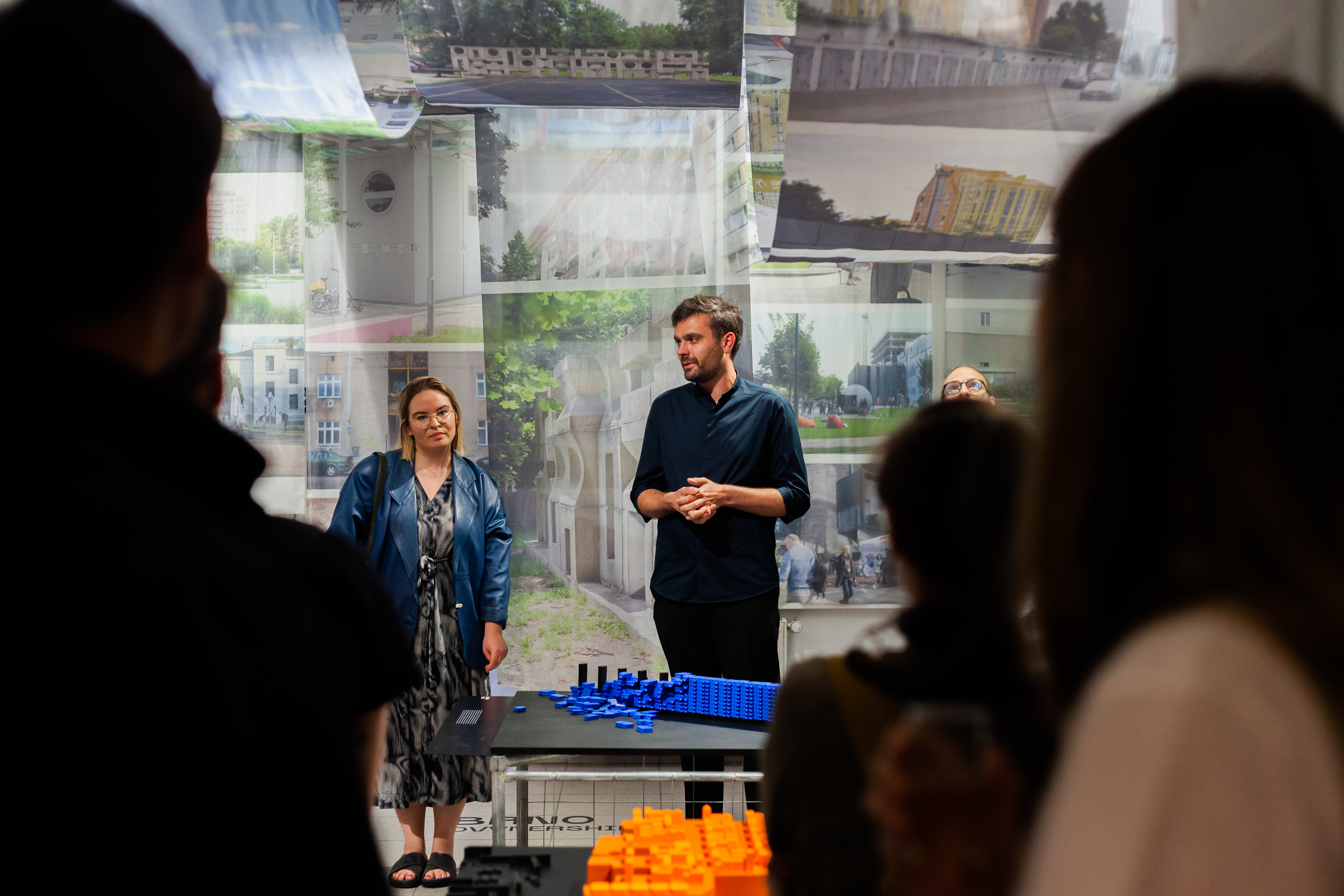The international traveling exhibition reached Kyiv before the war, now it has moved to Brno and discusses the possibilities of restoring Ukraine.
Kyiv, Bucharest, Warsaw and Brno are united by the historical context of the construction of monofunctional residential units, referred to here as block housing estates. The spaces between individual blocks of flats are often criticized. The public space, belonging to everyone and actually to no one, has undergone many changes since its construction, but still has not found its final form. He remains elusive. The exposition of the traveling exhibition - Public spaces after '89 and '22 presents the transformation of four European cities by 2022. The exhibition in the Mini Gallery at the Faculty of Architecture of BUT documents the changes through photographs, interviews and models, and at the same time starts a professional discussion about the future construction of war-torn Ukraine.< /font>
The mass construction of housing estates in Warsaw, Brno, Bucharest and Kyiv has a common historical context. Monofunctional units may have solved the demand for housing in the past, but at the same time they caused major problems with traffic and gentrification for cities. The solution to these problems, especially in large Central and Eastern European cities, is based on the need for dynamic adaptation, not long-term strategic planning.
The exhibition introduces viewers to the issues of polycentricity, ownership, cooperation and reconstruction in photos and videos, through interviews with local experts, shows graphs, construction plans and documents. Four cities are examined through the eyes of the city administration, non-governmental organizations, researchers and the residents themselves.

"With colleagues from partner cities (Brno, Warsaw, Bucharest and Kyiv) together we investigated the state of public spaces and housing policy." mentions Zuzanna Mielczarek. "February 2022 changed everything, including priorities in architectural and urban planning initiatives, and so the exhibition responds to the situation that occurred. There have been more reactions and considerations regarding the future reconstruction of Ukraine after the end of the war," he adds.
A side-by-side comparison of four locations shows different approaches in handling housing policy after 1989. In the autumn of last year, the exhibition was shown in Kyiv in as part of the Homes for Tomorrow – CANactions festival, then in Warsaw and Bucharest. On February 24, 2022, the world was shaken by the news of the Russian invasion of Ukraine. The Brno exhibition is expanded by interviews with Ukrainian architects, academics, activists and investors dealing with post-war reconstruction.
The exhibition can be seen in the Mini Gallery at the Faculty of architecture BUT in Brno, Poříčí 5. Every day from 8:00 a.m. to 6:00 p.m. until Friday 24 June 2022.

Organizers: Narodowy Instytut Architektury i Urbanistyki (National Institute of Architecture and Urban Planning, Poland)
Curators: Zuzanna Mielczarek, Kacper Kępiński
Partners: CANactions Festival, Ion Mincu University of Architecture and Urbanism, OARB (The Romanian Chamber of Architects Bucharest Subsidiary), Brno University of Technology - Faculty of Architecture, Instytut Polski w Kijowie (Polish Institute in Kyiv ),
Production: Weronika Sołtysiak
PR: Dominik Witaszczyk, Joanna Krupa
Graphic design: Victor Hardziuk, Martyna Wyrzykowska, Oleksandra Maiboroda
Project support: Mania Bień (Scenography), Dagna Debiecka (3D models), Petro Vladimirov (Ukrainian part co-curating)
3D models: Wolf3D
Photo: Eva Drbalová (Brno), Cuba, Rodziewicz (Warsaw), Sasha Stavnichuk (Kyiv), Cristi Staicu, Kacper Kępiński, Zuzanna Mielczarek (Bucharest)
Video: Cristi Staicu (Bucharest), Jiří Choutka (Brno), Michał Sierakowski (Kyiv), Adrian Szadowiak (Warsaw), Adrian Szadowiak (Shadow Media Group)
Experts: Radek Toman, Bara Srpkova, Jiří Maly, Tereza Kvapilová (Brno)
Monika Konrad, Michał Oman, Marlena Happach, Joanna Erbel, Łukasz Drozda (Warsaw), Emil Ivănescu, Stefan Gheciulescu, Anca-Maria Pasarin, Maria Duda, Alexandru Belenyi (Bucharest), Oleksandr Animisov, Anastasiya Ponomaryova, Petro Vladimirov, Oleg Drozdov, Urbanyna, Igor Raikov (Ukraine).
| Inserted by: | Šoborová Adéla |
|---|---|
| Inserted | |
| Last updated |
